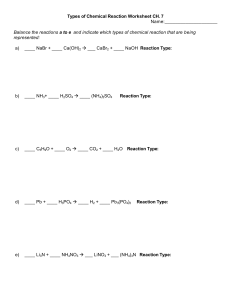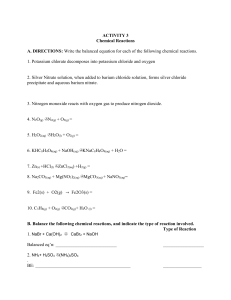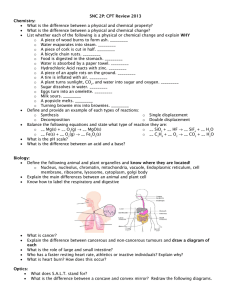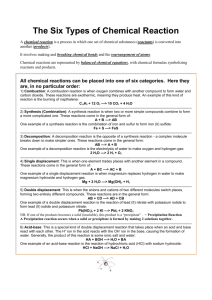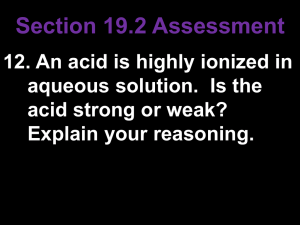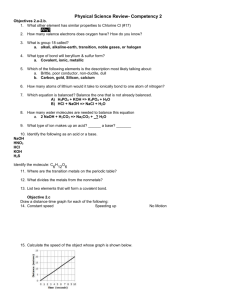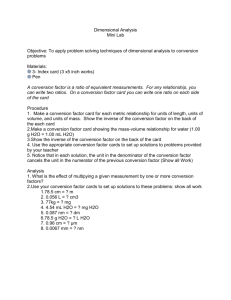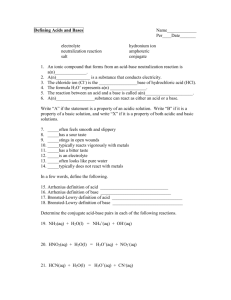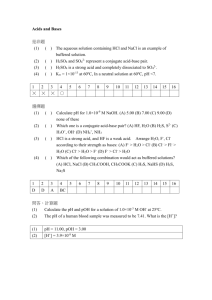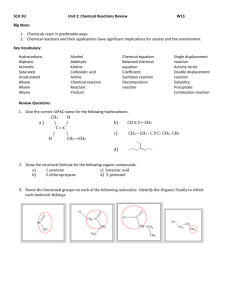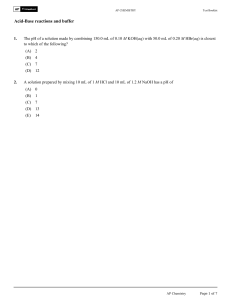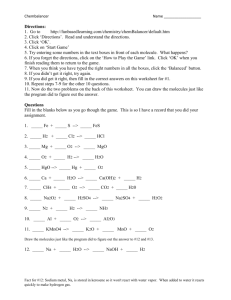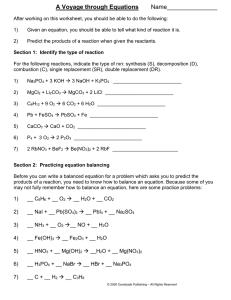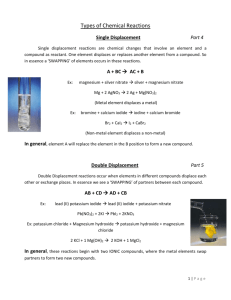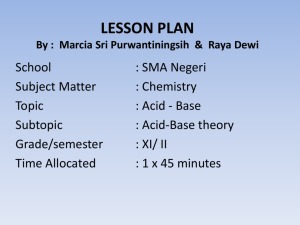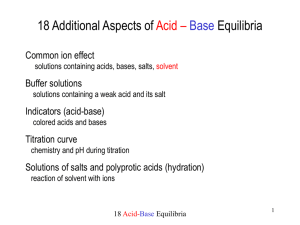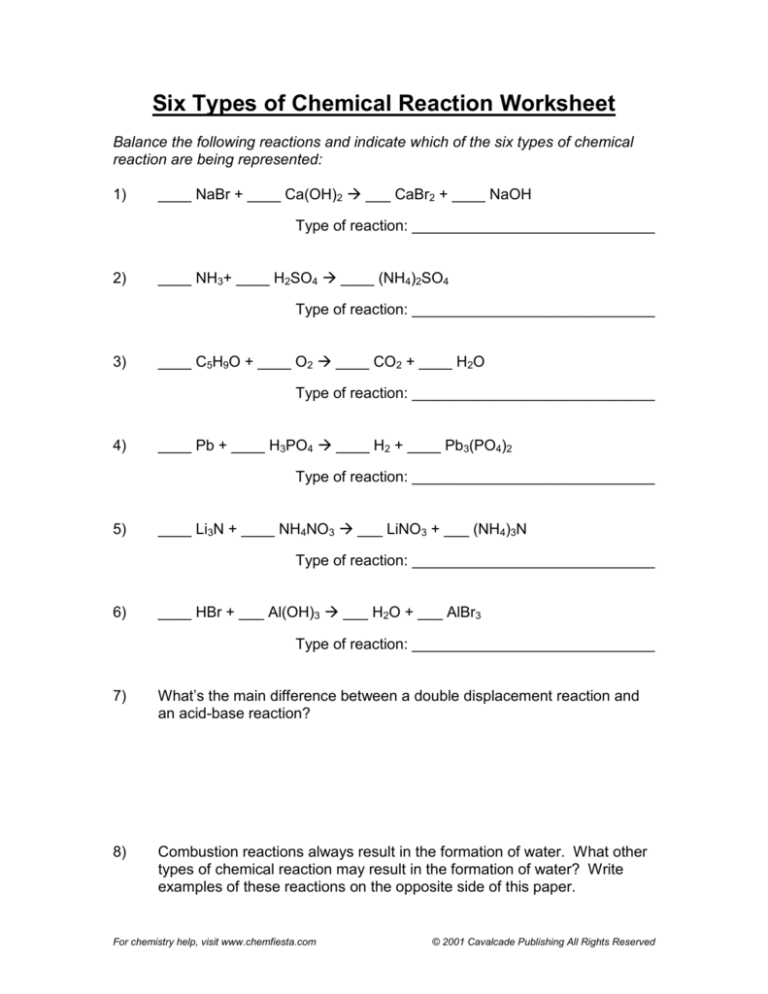
Six Types of Chemical Reaction Worksheet
Balance the following reactions and indicate which of the six types of chemical
reaction are being represented:
1)
____ NaBr + ____ Ca(OH)2 Æ ___ CaBr2 + ____ NaOH
Type of reaction: _____________________________
2)
____ NH3+ ____ H2SO4 Æ ____ (NH4)2SO4
Type of reaction: _____________________________
3)
____ C5H9O + ____ O2 Æ ____ CO2 + ____ H2O
Type of reaction: _____________________________
4)
____ Pb + ____ H3PO4 Æ ____ H2 + ____ Pb3(PO4)2
Type of reaction: _____________________________
5)
____ Li3N + ____ NH4NO3 Æ ___ LiNO3 + ___ (NH4)3N
Type of reaction: _____________________________
6)
____ HBr + ___ Al(OH)3 Æ ___ H2O + ___ AlBr3
Type of reaction: _____________________________
7)
What’s the main difference between a double displacement reaction and
an acid-base reaction?
8)
Combustion reactions always result in the formation of water. What other
types of chemical reaction may result in the formation of water? Write
examples of these reactions on the opposite side of this paper.
For chemistry help, visit www.chemfiesta.com
© 2001 Cavalcade Publishing All Rights Reserved
Six Types of Chemical Reaction Worksheet
Answers
Balance the following reactions and indicate which of the six types of chemical
reaction are being represented:
1)
2 NaBr + 1 Ca(OH)2 Æ 1 CaBr2 + 2 NaOH
Type of reaction: double displacement
2)
2 NH3+ 1 H2SO4 Æ 1 (NH4)2SO4
3)
4 C5H9O + 27 O2 Æ 20 CO2 + 18 H2O
Type of reaction: synthesis
Type of reaction: combustion
4)
3 Pb + 2 H3PO4 Æ 3 H2 + 1 Pb3(PO4)2
Type of reaction: single displacement
5)
1 Li3N + 3 NH4NO3 Æ 3 LiNO3 + 1 (NH4)3N
Type of reaction: double displacement
6)
3 HBr + 1 Al(OH)3 Æ 3 H2O + 1 AlBr3
Type of reaction: acid-base
7)
What’s the main difference between a double displacement reaction and
an acid-base reaction?
Acid-base reactions form water.
8)
Combustion reactions always result in the formation of water. What other
types of chemical reaction may result in the formation of water? Write
examples of these reactions on the opposite side of this paper.
Acid-base: HCl + NaOH Æ H2O + NaCl
Synthesis: 2 H2 + O2 Æ 2 H2O
Decomposition: NH4OH Æ NH3 + H2O
Single displacement: H2 + 2 NaOH Æ 2 Na + 2 H2O (not common)
For chemistry help, visit www.chemfiesta.com
© 2001 Cavalcade Publishing All Rights Reserved

